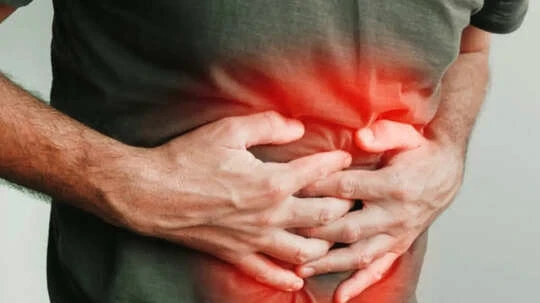There has been a fast and significant rise in gastric, or stomach, cancer across the world, especially among younger people-a trend demanding immediate attention.
According to experts, the rates of stomach cancer, which causes malignant tumour that develop in the lining of the stomach, are projected to rise sharply in the coming decades. This extremely serious condition can be difficult to detect in its early stages, are projected to rise
Asian countries-especially China and India-are expected to bear the biggest burden due to a rapidly rising population and ageing, which is an alarming projection. Along with it, a complex mix of infections, lifestyle factors, and dietary habits makes this a pressing public health concern, especially for India.
India, now the world’s most populous nation, presents a stomach cancer profile that differs significantly from other Asian countries. “The disease’s distribution reveals striking regional disparities, with southern and eastern states reporting up to four times higher incidence rates compared to northern regions. Spicy diets rich in red chillies, frequent intake of pickled and smoked foods, and region-specific tobacco habits may be contributing to this concerning geographical pattern,” Dr Giridhar C. M., consultant surgical oncologist at Apollo Hospitals, told Times Now.
According to Dr Giridhar, Helicobacter pylori infection remains the most common risk factor for stomach cancer development across the world. However, in India, this relationship proves less straightforward than in other countries. “Though H. pylori infection is widespread across the population, studies consistently show inconsistent connections to cancer development, suggesting that modern lifestyle changes and poor dietary habits are becoming stronger drivers of the disease,” he added.
Missed symptoms of gastric cancer
Experts believe one of the main reasons why this cancer is rising is due to the fact that it does not show symptoms in early stages, when detection and treatment are easy. “What proves even more worrying is how easily early symptoms are dismissed by patients and sometimes healthcare providers alike,” said Dr Giridhar. Stomach cancer often begins with vague complaints like:
- Persistent heartburn
- Indigestion
- Bloating
All of these signs are commonly self-diagnosed by most people as gastritis and treated with over-the-counter acid suppressants. “This approach can prove dangerous for several reasons,” said the doctor.
“Doctors say long-term use of antacids and acid-suppressing drugs without proper medical guidance can mask serious underlying conditions, significantly delaying accurate diagnosis when treatment outcomes are most favourable,” he added. Older adults, especially those above 50 years of age, who experience unexplained weight loss, persistent indigestion, or early fullness after eating, should avoid self-medication entirely. Instead, they must consult a gastroenterologist or cancer specialist promptly to rule out serious conditions.
Other risk factors for gastric cancer
A few other avoidable risk factors include:
- Tobacco smoking
- Alcohol consumption
- Processed and salty foods
- Poor sanitation practices increase the risk of H. pylori infection transmission.
In contrast, dietary patterns rich in fresh fruits, vegetables, and fibre help protect the stomach lining and reduce inflammatory processes that can lead to cancerous changes.
Early screening is the need of the hour
According to experts, many Asian countries like Japan and South Korea, where stomach cancer rates are historically very high, have successfully implemented comprehensive national screening programmes and systematic H. pylori eradication efforts. These public health measures have dramatically improved early detection rates and patient survival outcomes. “Unfortunately, in India, current resource limitations make such widespread screening programmes difficult to implement immediately,” said Dr Giridhar.
Apart from avoiding tobacco and maintaining proper hygiene standards, you need to seek timely medical advice for persistent symptoms as practical ways to lower personal risk substantially.
